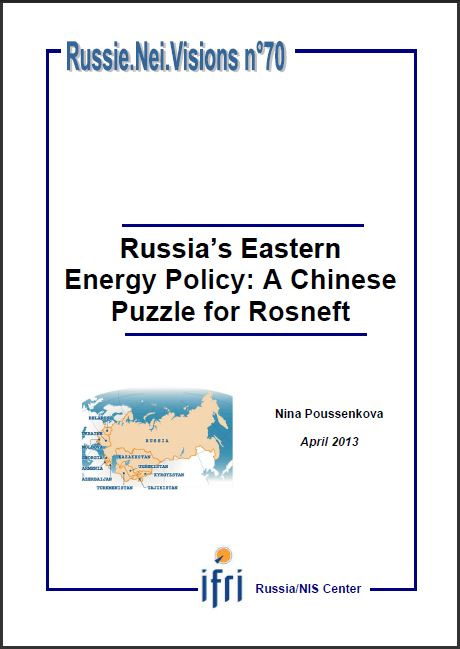Russia's Eastern Energy Policy: A Chinese Puzzle for Rosneft

In the past decade Russia set a strategic goal: to develop the Eastern vector of its energy policy and strengthen oil and gas cooperation with the Asia-Pacific countries. While dialogue on gas with China was stalled, Rosneft, the country's number-one oil company, made a breakthrough in petroleum relations.
Rosneft received credits from Chinese banks against guaranteed supplies of oil; lobbied for the construction of a spur to China from the Eastern Siberia—Pacific Ocean pipeline system; dramatically increased oil exports to China; let CNPC and Sinopec enter the Russian upstream; cooperated with them abroad; sold some of its shares to CNPC, and consolidated its position in China's downstream. The state company is fulfilling the government's strategic plans on the diversification of markets for hydrocarbons and the development of the East of the country, while simultaneously influencing state energy policy.
Rosneft has its own long-term plans to become an international energy corporation and it is pursuing the internationalization of its business, including in the Asia-Pacific markets. Yet thanks to China, Rosneft is also supporting its short-term corporate interests: the first two loans were used to pay for the acquisition of Yukos, and now it plans to attract the Chinese money to buy TNK-BP. Therefore, the key question remains: Do its corporate interests correspond to the long-term goals of Russia, in so far as they place the country in a position of dependence on China?
Download the full analysis
This page contains only a summary of our work. If you would like to have access to all the information from our research on the subject, you can download the full version in PDF format.
Russia's Eastern Energy Policy: A Chinese Puzzle for Rosneft
Related centers and programs
Discover our other research centers and programsFind out more
Discover all our analysesThe Caspian Sea as an Emerging Energy Hub : Potentials and Limitations
This report analyzes the prospects of the Caspian Sea region — and its key actors except for Russia and Iran — becoming an important energy hub serving the needs of the European Union (EU).
The European Union's Strategic Test in Georgia
The political crisis brewing in Georgia is of an existential nature for the country. What is at stake is Georgia's future as a democratic and sovereign European nation (EU).
Commanders of Putin's Long War: Purged, Reshuffled and Disgruntled
The trend of reshuffling the Russian top military command in the course of a fast-evolving and far from successful war has progressed unevenly both across the Armed Forces’ structures and in time. The rationale for and timing of the abrupt cadre decisions made by Commander-in-Chief Putin often defy logical explanation, and the rare official clarifications are no more informative than the usual information blackout.
Russian Military Manpower After Two and a Half Years of War in Ukraine
In addition to a military victory in Ukraine, the Russian leadership is planning to build up sizable troop formations for a possible conflict with NATO in the Baltic region and the Kola Peninsula. In particular, current plans aim for the military manpower to grow by about 350,000, reaching a total of 1.5 million soldiers and commanders. In the context of the current conflict in Ukraine, this cannot be accomplished without a new wave of mass mobilization.









